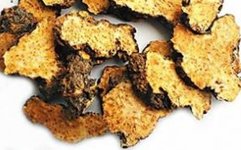Aromatic Chinese Medicinal Herbs
Cang Zhu (Atractylodes Rhizome)
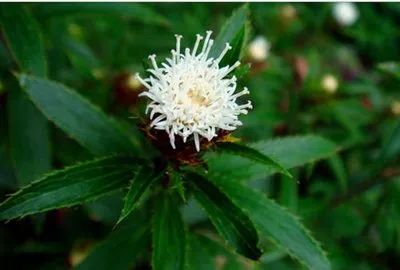
1
Introduction
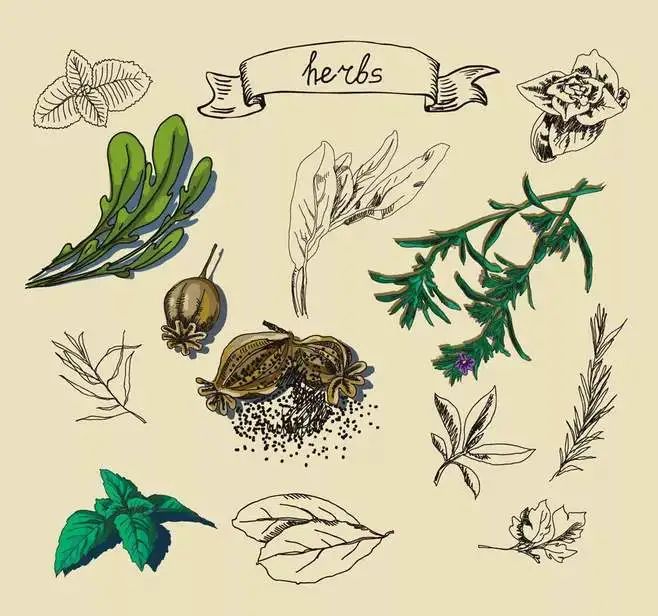
Cang Zhu (English name: RHIZOMA ATRACTYLODIS), also known as Chi Zhu and Qiang Tou Cai, is the dried rhizome of the Atractylodes plant from the Asteraceae family. It is harvested in spring and autumn, cleaned of soil, dried, and the fibrous roots are removed. The rhizome is used in medicine and has a bitter, warm, and pungent flavor, with effects of drying dampness, transforming turbidity, and alleviating pain. Cang Zhu has many commercial names, such as Han Cang Zhu and Miao Zhu (Spear Cang Zhu), which can be broadly divided into two categories: Northern Cang Zhu from the north and Southern Cang Zhu from the south.
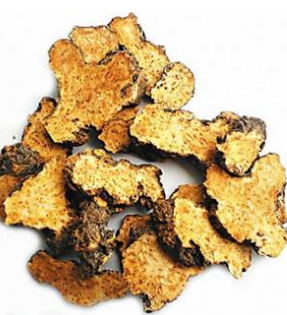
2
Western Medicine

1. Anti-hypoxia Effect: In a mouse hypoxia model induced by potassium cyanide, the acetone extract of Cang Zhu at 750 mg/kg significantly increased the survival time of mice and reduced the relative mortality rate. The main active component of Cang Zhu for anti-hypoxia is β-eucalyptol.
2. Effects on the Digestive System: The volatile oils contained in Cang Zhu have carminative and stomachic effects, and its bitterness also promotes appetite.
3. Cardiovascular Effects: Cang Zhu has a mild inhibitory effect on the heart of toads and a slight dilatory effect on the blood vessels of the hind limbs. A small dose of Cang Zhu extract administered intravenously can mildly increase blood pressure in rabbits, while a large dose can decrease blood pressure.
4. CNS Inhibition: A small amount of Cang Zhu volatile oil has a sedative effect on frogs, while also enhancing spinal reflexes; a larger amount shows inhibitory effects, leading to respiratory paralysis and death.
5. Effects on the Liver: A water decoction of Cang Zhu at 10 g of raw herb/kg administered to mice for 7 days significantly promotes liver protein synthesis. The raw herb and its components, including Cang Zhu alcohol, Cang Zhu ketone, and β-eucalyptol, have significant protective effects against carbon tetrachloride-induced damage in primary cultured mouse liver cells.
6. Antimicrobial and Disinfecting Effects: Cang Zhu is placed in a covered enamel container, soaked in 95% alcohol to submerge it, and after 8-10 hours, it is taken out and burned in a prepared surgical area until it turns to ash. The results show a significant reduction in bacterial counts after disinfection compared to before, indicating satisfactory disinfection effects.
3
Properties and Meridians

Properties: Pungent; Bitter; Warm
Meridians: Spleen; Stomach; Liver
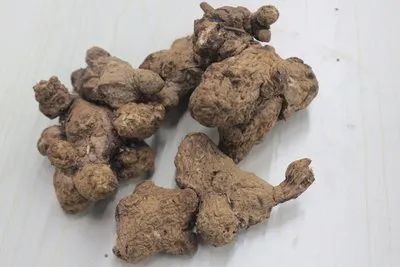
4
Functions and Indications

Functions: Dries dampness and strengthens the spleen; dispels wind-damp; brightens the eyes.
Indications: Dampness obstructing the spleen and stomach; fatigue and lethargy; abdominal distension; loss of appetite; nausea and diarrhea; phlegm and fluid retention; damp swelling; exterior syndrome with dampness; heavy pain in the head and body; wind-damp bi syndrome; heaviness and pain in the limbs and joints; atrophy; night blindness.
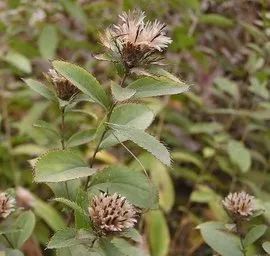
5
Related Discussions

|
1 |
“Ben Cao Qiu Yuan” Stops water diarrhea, food injury, and spleen dampness leading to blood in stool. |
|
2 |
“Yi Xue Qi Yuan” Cang Zhu is indicated similarly to Bai Zhu, but is more effective in dispelling upper dampness through sweating. It is less effective in tonifying the middle jiao and dispelling dampness. “Zhu Zhi Mi Yao” states that its use is similar to Bai Zhu, but it is heavier and denser. For damp swelling in the lower limbs, add Bai Zhu and scrape off the skin. |
|
3 |
“Ren Zhai Zhi Zhi Fang” Spleen essence is insufficient, leading to urinary incontinence and persistent back pain; Cang Zhu should be used to consolidate spleen essence, as essence is produced from grains. |
|
4 |
“Ben Cao Gang Mu” Zhang Zhongjing used Cang Zhu to dispel all evil qi, burning it with pig hoofs. Tao Yinjian also mentioned that Cang Zhu can eliminate evil qi and avert disasters, hence during epidemics and New Year, families often burn Cang Zhu to ward off evil spirits. |
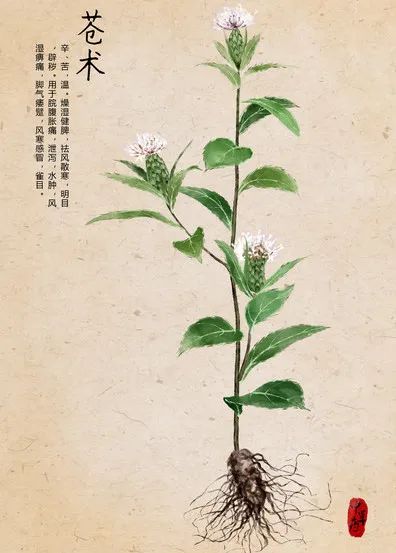
6
Medicinal Formulas

1. For Taiyin Spleen meridian dampness, with water diarrhea, slight heaviness and fullness, weakness and lack of appetite, and severe diarrhea: Cang Zhu 2 liang, Shao Yao 1 liang, Huang Qin 0.5 liang. Grind together, take 1 liang each time, add a small amount of light-flavored cinnamon, and boil with 1.5 cups of water until reduced to 1 cup, and take warm. (“Su Wen Bing Ji Bao Ming Ji” Cang Zhu Shao Yao Decoction)
2. For summer heat causing diarrhea, strengthening the spleen and warming the stomach, promoting appetite, and treating food injury, chest fullness: Shen Qu (fried), Cang Zhu (soaked in rice wash overnight and dried) in equal parts, ground into powder. Make into pills the size of a phoenix seed. Take 30 pills at any time, swallowed with rice drink. (“Ju Fang” Qu Zhu Pills)
3. For diarrhea: Cang Zhu 2 liang, Xiao Jiao 1 liang (remove seeds, fry). Grind into a very fine powder, make into pills the size of a phoenix seed. Take 20-30 pills before meals with warm water. For persistent dysentery, add cinnamon. (“Su Wen Bing Ji Bao Ming Ji” Jiao Zhu Pills)
4. For damp-heat with excessive sweating: Zhi Mu 6 liang, Gan Cao (roasted) 2 liang, Shi Gao 1 jin, Cang Zhu 3 liang, Jing Mi 3 liang. Grind into pieces the size of a soybean. Take 5 qian each time, boil with 1.5 cups of water until reduced to 6 parts, take warm. (“Lei Zheng Huo Ren Shu” Bai Hu Jia Cang Zhu Decoction)
Excerpted from: “Dictionary of Chinese Medicinal Herbs”, “Chinese Pharmacopoeia”, “Chinese Herbal Medicine”
Images and some text sourced from the internet (please delete if infringing)
Planning / Yin Peihao
Review / Yin Peihao
Editor / Yuan Qin
Medical Tumor Classroom
Scan the QR code to follow us

Follow the Medical Tumor Classroom
Concern for your health
I know you are “watching”~

